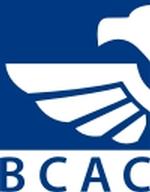British Columbia Aviation Council (BCAC)

"For over sixty years, the British Columbia Aviation Council has provided dedicated representation, support and service to the aviation community of that province and has provided an outstanding model for similar councils in other provinces in Canada."
Man has dreamed of flying for thousands of years - a dream expressed in the myths and legends of peoples of every land. Then it was the dreamers, the visionaries and the inventors who were caught up in the concept of manned flight.
Sixty years ago, aviation was growing in maturity and many cities and towns were coming to realize that aviation was an evolving transport system that progressive communities must recognize. In 1938, at a time of spirited enthusiasm in aviation, a group of civic leaders met in the city of Nelson and formed the British Columbia Aviation Council (BCAC).
The B.C. Aviation Council was the first of its kind in Canada. Membership was afforded to all city and rural municipalities and recognized Boards of Trade throughout the province. It was an organization formed primarily to promote the safe and orderly development of aviation and aviation services in British Columbia. This entailed close cooperation with the federal Department of Civil Aviation, in order to supply its members with up to date information regarding civil aeronautics regulations, and to support municipal leaders seeking airports and air routes into their communities.
Twelve municipalities and eight boards of trade held initial membership in the council. Within ten years the membership had grown to twenty-nine municipalities and thirteen boards of trade and commerce, three flying clubs and twenty-nine individuals. In 1998, there were three hundred and eighty seven members.
The current objectives of the Council remain the same as when it was incorporated over sixty years ago. The BCAC offers help and encouragement to communities in developing airports, landing strips and alignment areas for float-equipped aircraft. Its continuing endeavour is to make flying less hazardous in the uncompromising geography of that mountainous province. The Council has continually encouraged the establishment of improved communications and additional weather reporting stations along the coast and the interior of the province. Due to pressure from the Council, many power lines and cables crossing mountain valleys have been adequately marked for helicopters, water bombers and other low flying aircraft.
The Council is involved with the aviation community in specific airport developments, environmental impact studies, public forums, project funding, air regulations and licencing. In many of these assignments, their role is as mediator, to assist in problem-solving between various levels of government and the aviation industry.
The Council has effectively represented the interests of aviation to Transport Canada, developing a creditable relationship with all departments of the ministry. The Council continues to be consulted on aviation matters and enjoys excellent cooperation from the ministry personnel, senior Ottawa personnel and senior staff of both the Pacific and Western regions of the department. In addition, the Council's President and CEO has a seat on the Advisory Committee to NAV Canada.
Since 1961, the BCAC has gathered information and prepared air facilities maps for the province, distributing more than five thousand annually throughout North America. It has also published and distributed a VFR (Visual Flight Rules) Handbook as a supplement to the facilities maps, which describes the safest flyways in the province.
Throughout the province, the Council conducts educational seminars for aviators and airport officials. With various awards and trophies, the Council provides incentives and recognizes excellence and contributions to aviation in B.C.
The Belt of Orion Award for Excellence was presented to the British Columbia Aviation Council in 1999 at a ceremony held in Winnipeg, Manitoba.
The hard work and dedication of its members, each of whom donates many hours of corporate and personal time, is reflected in the success and esteem that the B.C. Aviation Council enjoys. It is remarkable that so much has been accomplished on a volunteer basis. A small but highly motivated and knowledgeable staff provides continuity in all Council endeavours.
